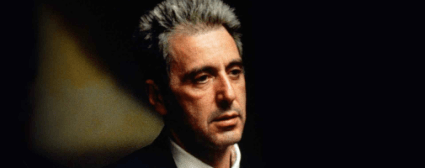Though Coppola made his directorial debut nearly a decade before The Godfather (with critical and commercial successes like You’re a Big Boy Now, Finian's Rainbow, and The Rain People), his career truly skyrocketed with the first installment of his trilogy based on Mario Puzo’s novel. The film redefined the gangster genre, revived Marlon Brando's career, and cemented the stardom of actors like Al Pacino, Robert Duvall, and Diane Keaton. It won three Oscars (Best Picture, Best Actor for Brando, and Best Screenplay for Coppola and Puzo) and became a massive box office hit.
Though not as well-received at the time, The Godfather Part II is now regarded as equally influential, and even more ambitious. The film is part of several exclusive clubs: it was the first sequel to win the Oscar for Best Picture, the first time Al Pacino and Robert De Niro shared credits (though not scenes) in the same film, and De Niro became the second actor to win an Oscar for playing the same character (Vito Corleone). The Godfather II expanded on everything the first did for the gangster genre and earned Coppola another Oscar for Best Director.
The third chapter in the Corleone saga is, for many understandable reasons, considered inferior to its predecessors, an uneven and anticlimactic conclusion. However, the story isn’t complete without it, and Coppola’s The Godfather trilogy remains essential viewing in its entirety. If you’re diving into this third chapter, we recommend Coppola’s 2020 re-edit, Coda: The Death of Michael Corleone, which wraps up the character’s story in a slightly more cohesive way.
Between the first two Godfather films, Coppola won his first prize at Cannes (what would later be known as the Palme d'Or) with the phenomenal thriller The Conversation. The story follows a surveillance expert grappling with a moral dilemma after obtaining information about a possible murder. Though less well-known today, it's certainly worth revisiting.
Coppola’s career is inseparable from Apocalypse Now, not only because it's one of his best films or earned him a second Palme d'Or, but for what it represented in his life. Based on Heart of Darkness by Joseph Conrad and adapted as a critique of the Vietnam War, the film’s nightmarish production took a toll on Coppola's career and health. If the artist is defined by their madness, Apocalypse Now defined Coppola, and he later redefined it back with two subsequent edits (with Final Cut considered the best and definitive version).




